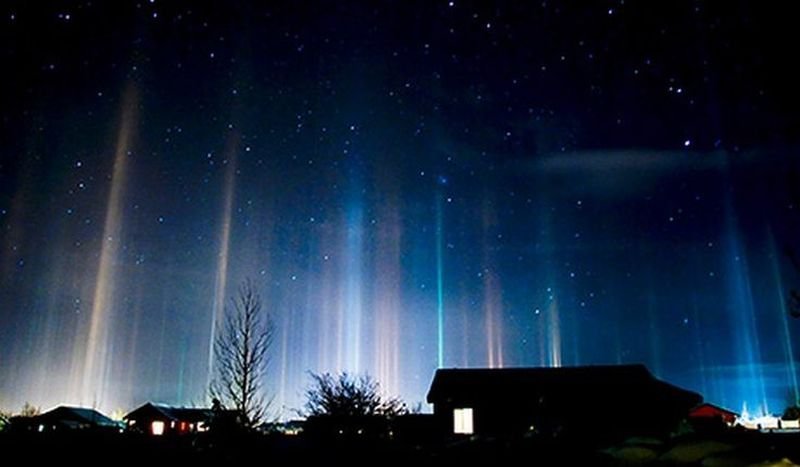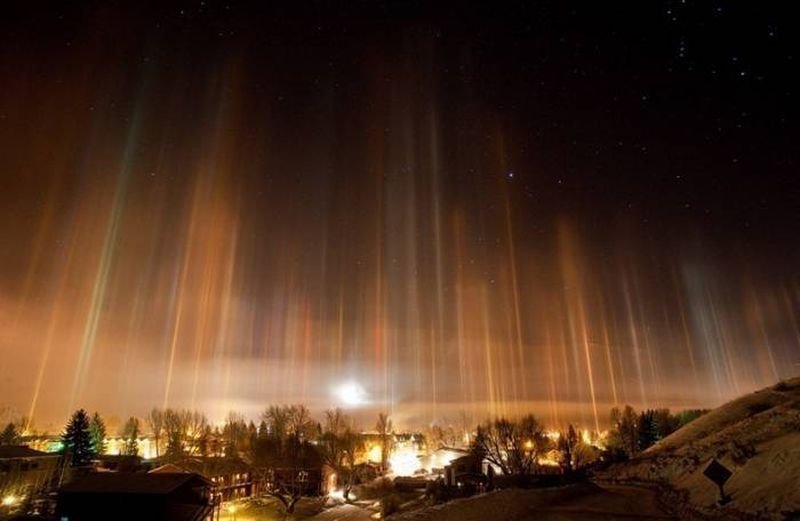There is so much happening in this world that we don’t know about. The wonders of God’s green earth is something we have always underestimated. Not only when it comes to destruction, but also when it comes to creating mesmerizing moments of natural beauty.
Having said that, here are 22 of the rarest and most beautiful natural phenomena that occur on planet earth:
1. The ‘Finnish Lapland’ where the trees look like snow covered cloaked monsters.
This happens due to freezing temperatures and snowfall in Lapland, which is the northern-most region of Finland.
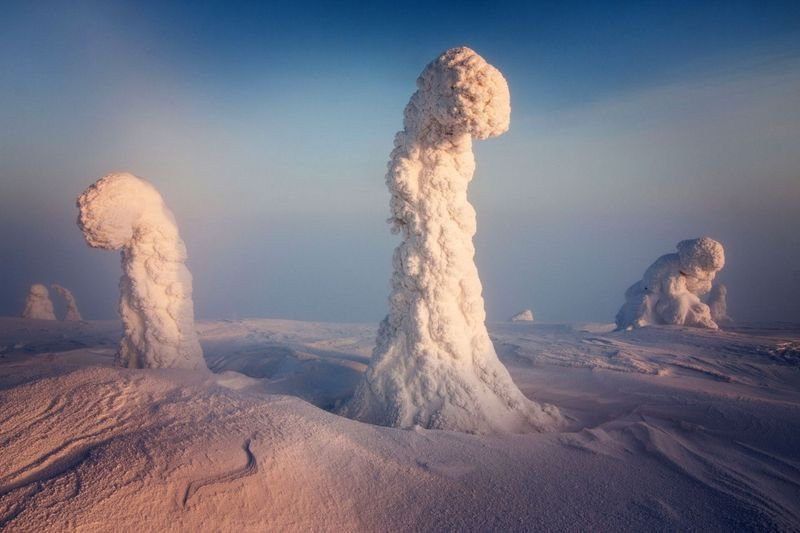
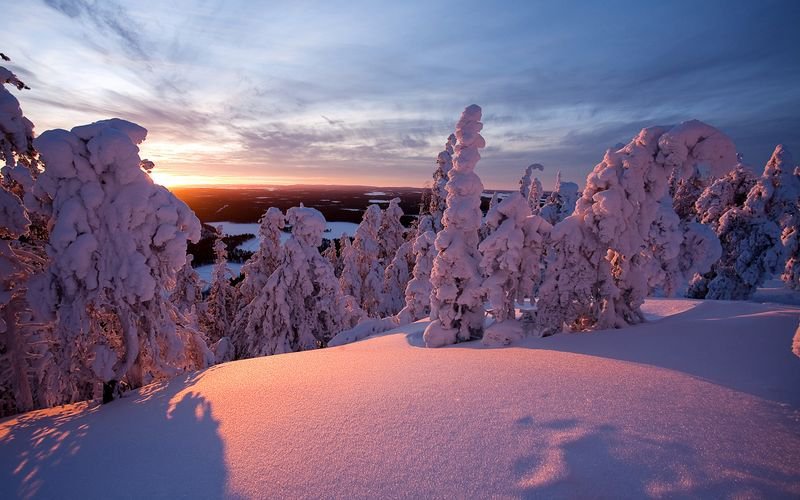
2. The ‘Lenticular Clouds’ that cap off the beauty of nature.
These have been mistaken for UFOs at times. The cloud formation in the troposphere occurs perpendicular to the wind direction. Gliders use it to get good lifts and create altitude and distance records.
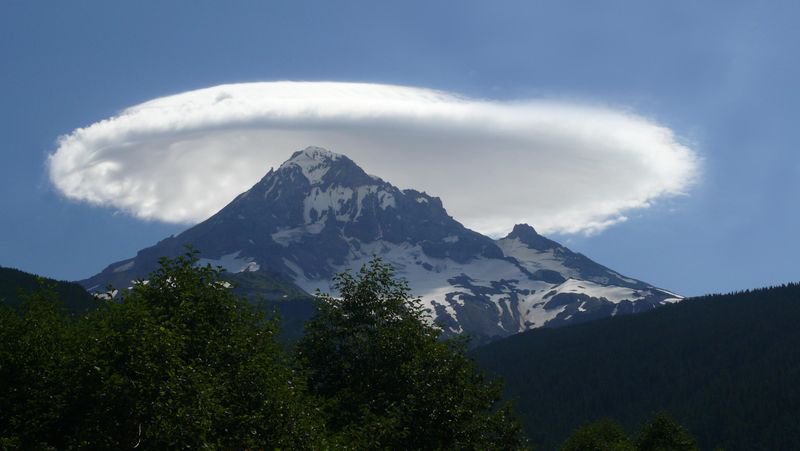
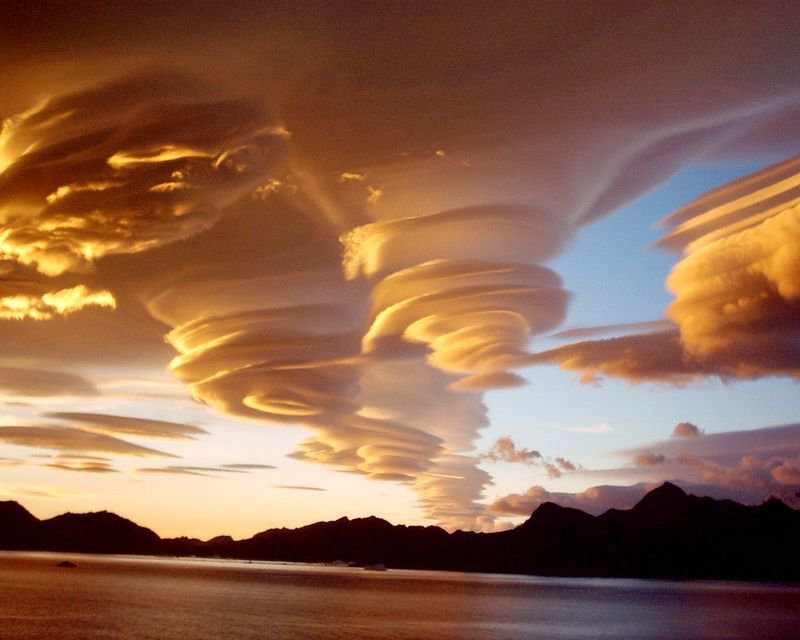
3. The ‘Skypunch’ phenomena that dents the clouds in the most perfect way.
As the name suggests, a large hole is created in cirrocumulous or altocumulous clouds due to temperature of the water body below being too low.
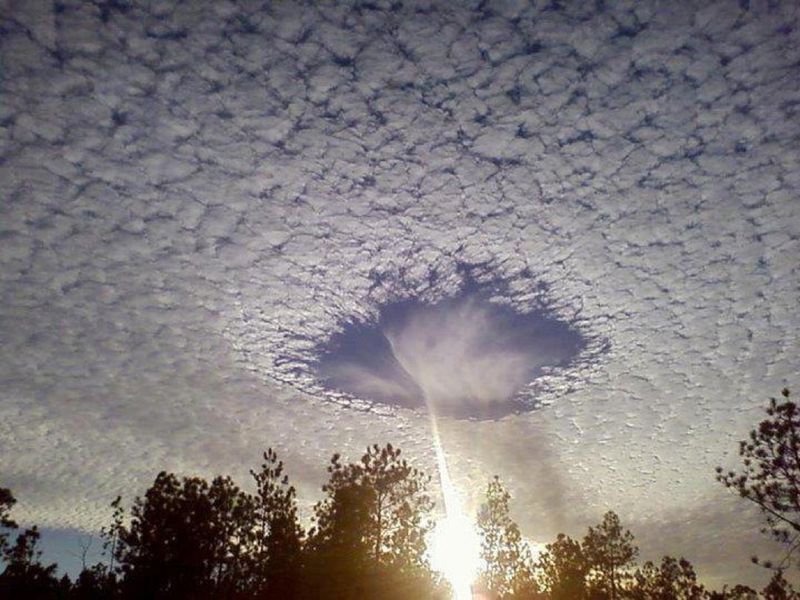
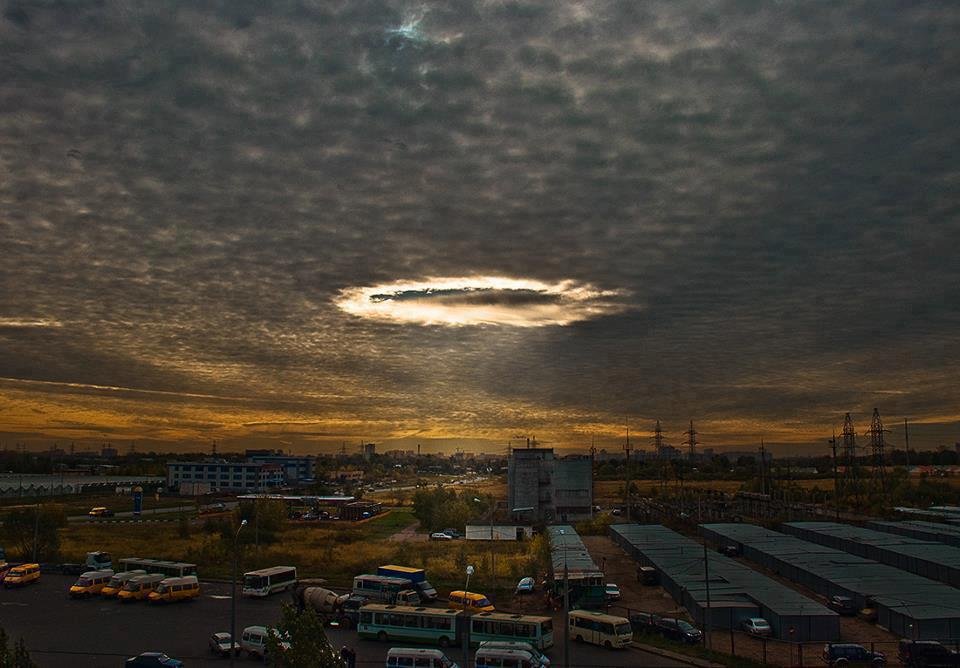
4. ‘Aurora Borealis’, which is like an aura of beauty up above.
These are caused when electrically charged particles from solar wind accelerate along the magnetic field lines into the upper atmosphere. Then these particles collide with gas atoms, creating the effect. The zone for ‘Aurora’ creation is 10 to 20 degrees from magnetic poles.
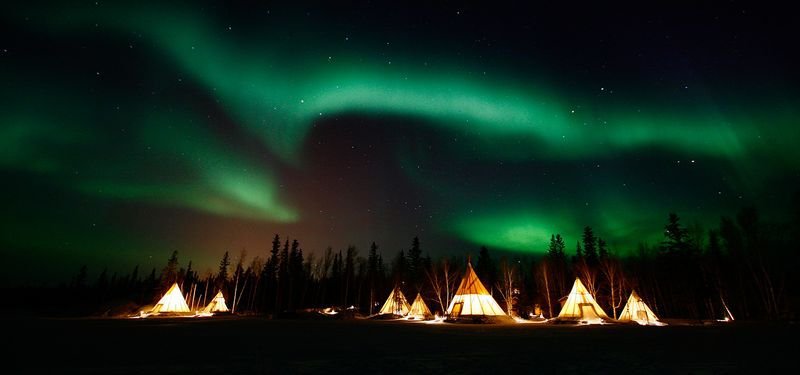
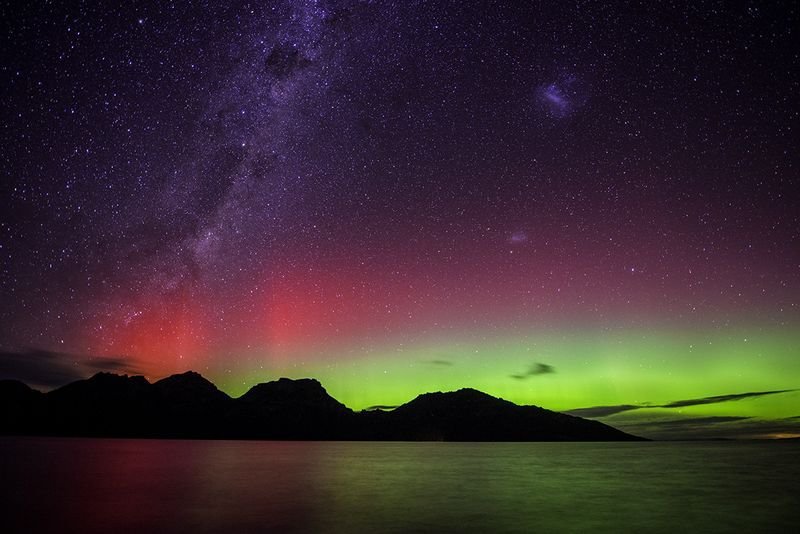
5. The ‘Frozen Waves’ in Antarctica that make you pause in time.
When the ice is compressed and the air bubbles are squeezed out, these waves are created. This blue ice is created because the light at the red end of the spectrum is absorbed.
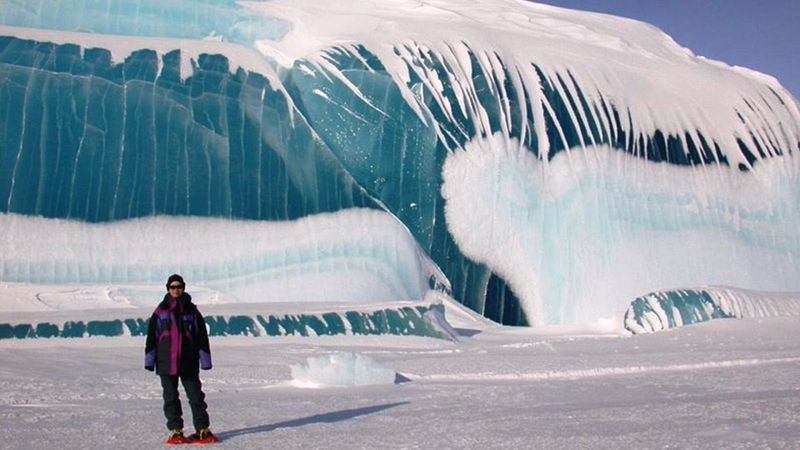
6. Or the spaghetti-shaped ‘Slush’ in Lake Suolijärvi, Finland.
It is claimed that snowfall, combined with winds & waves, resuls in the formation of this phenomena. But it disappears overnight.
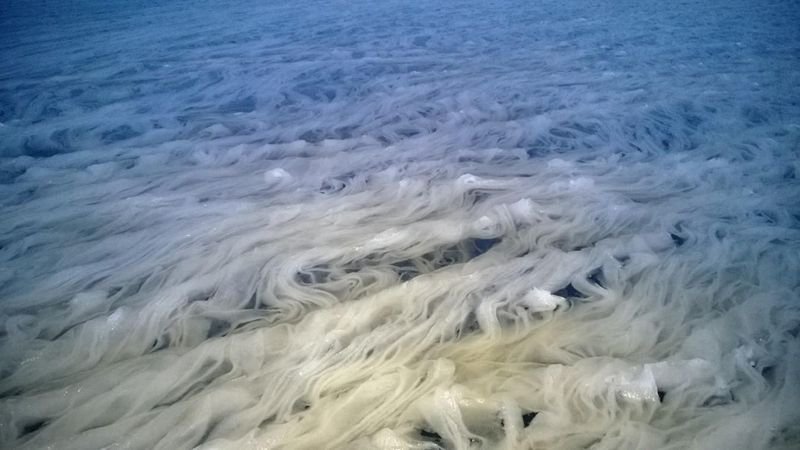
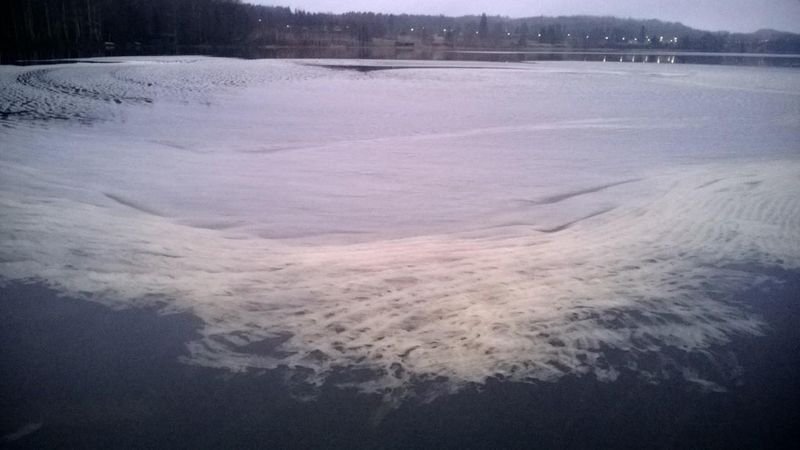
7. This ‘Triple Sunrise’.
Surprisingly, these occur more often than rainbows according to NASA. It is caused by sunlight shining through common atmospheric ice crystals with hexagonal cross-sections.
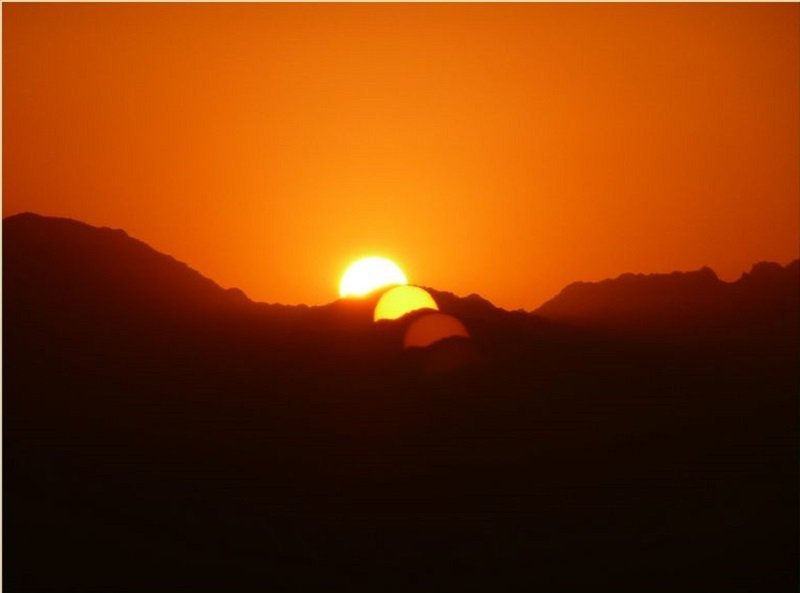
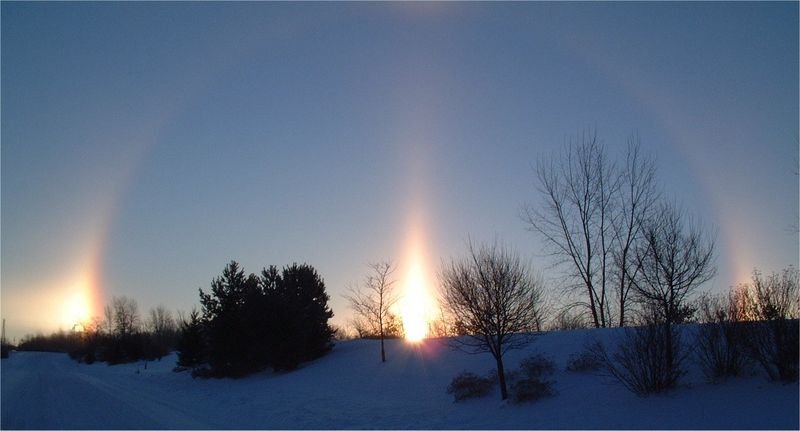
8. The regular ‘Rainbow’. Yes, there are more.
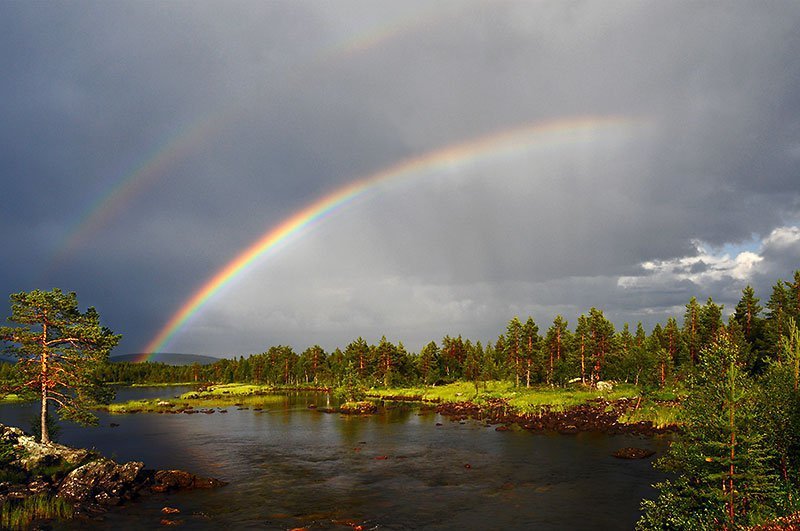
9. Like the ‘Monochrome Rainbow’.
These generally happen at sunrise or sunset. The shorter blue and green wavelengths are scattered out before they reach the water droplets, so to us it appears red. This is an unenhanced photo clicked in Minneapolis in July, 1980.
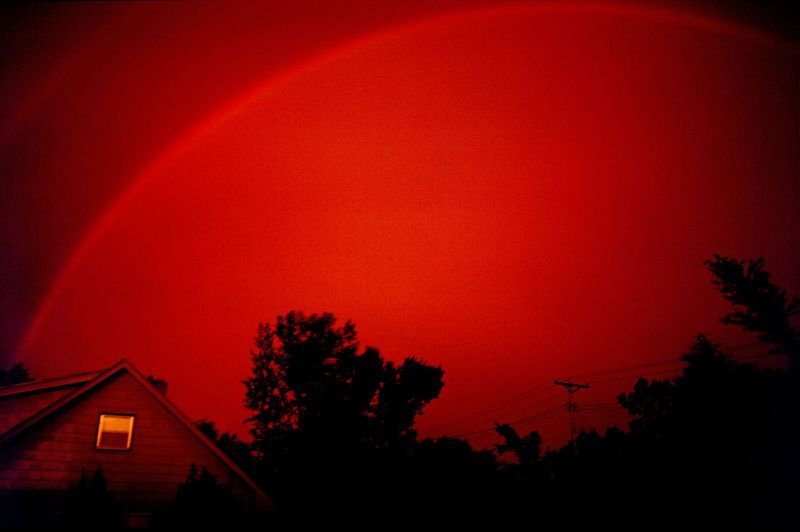
10. Or the ‘Fog Bow’.
NASA says that the active water drops are so small that quantum mechanical wavelength of light becomes important and smears out colours. thus, appearing white.
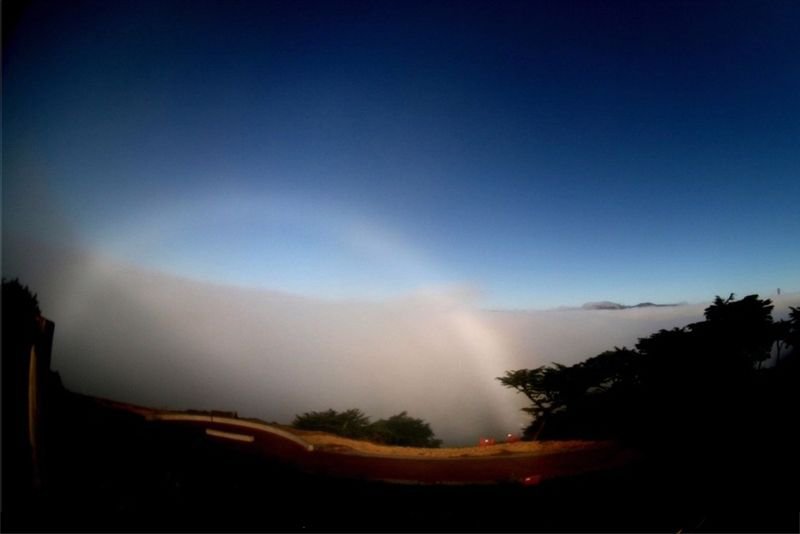
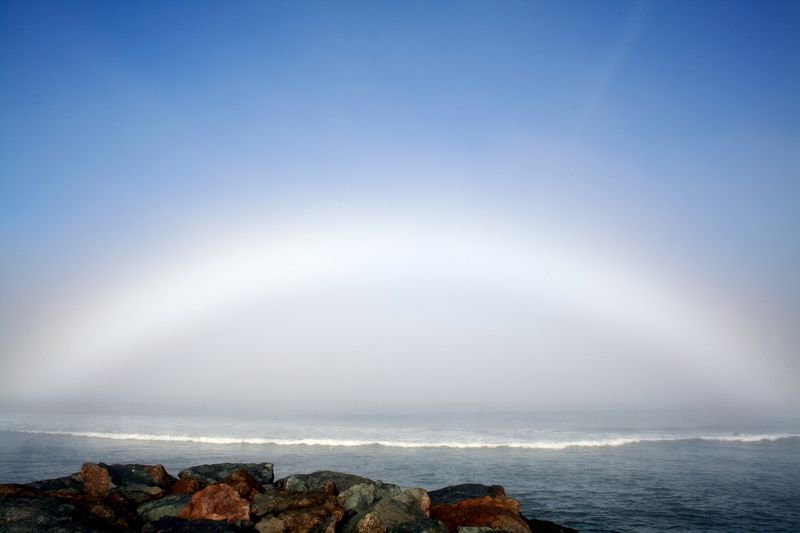
11. How about the ‘Moon Bow’?
Since these are formed using the light of the moon, which itself uses the light of the sun, the Moon Bow is similar to a regular rainbow. However, the colours can only be seen in long exposure pics as it may appear white to the naked eye.
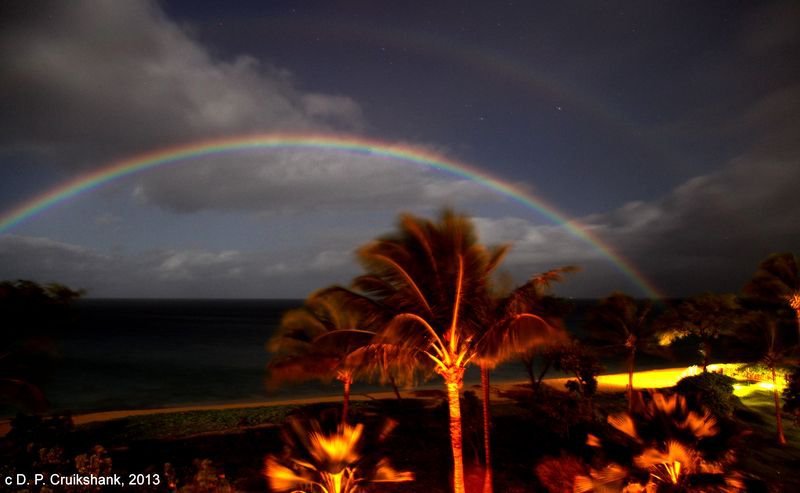
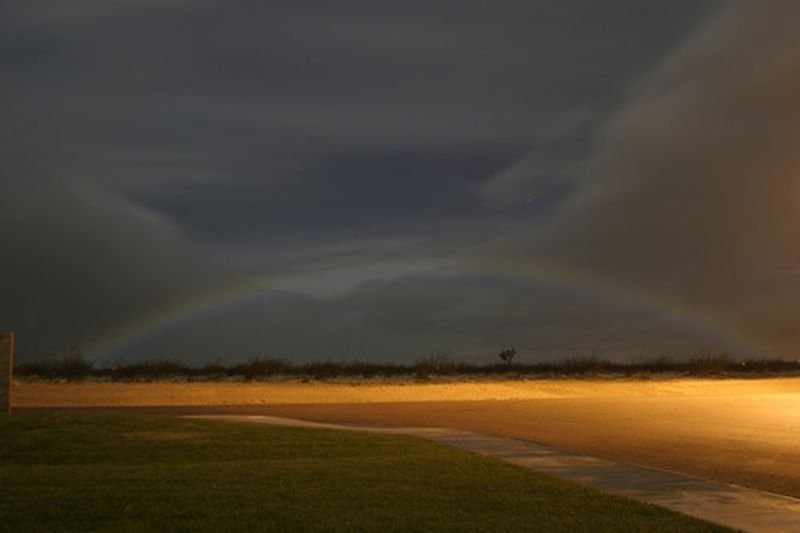
12. Not to mention the heavenly ‘Halo’.
They are produced in the upper troposphere by ice crystals. The type of ‘Halo’ depends on the shape and orientation of the crystals.
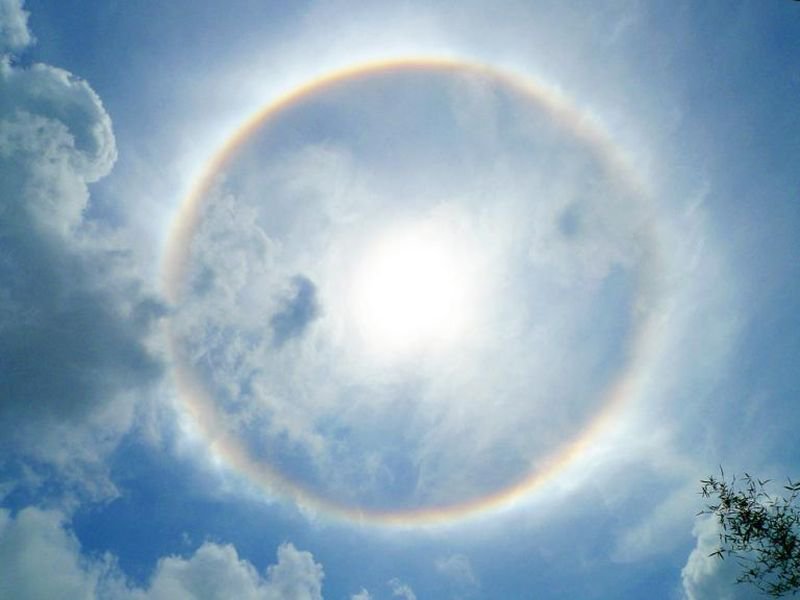
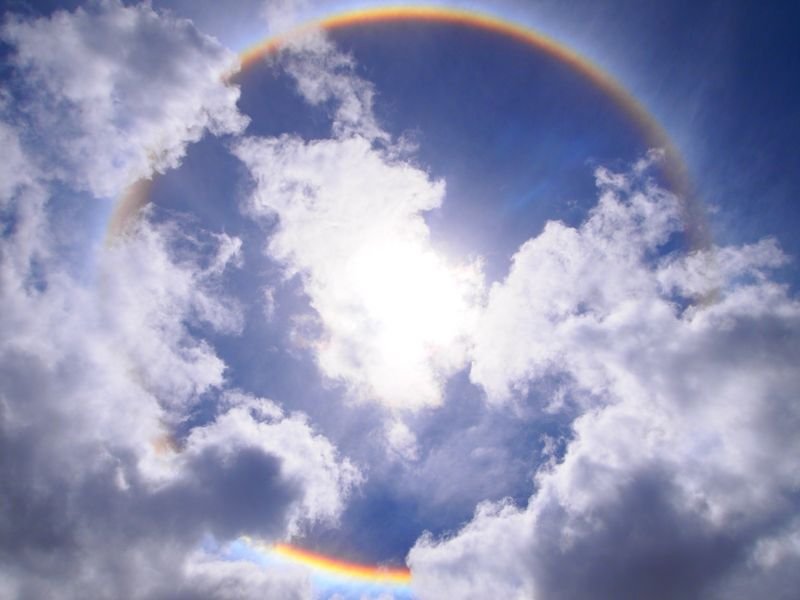
13. The ‘Salar De Uyuni’ lake in Bolivia that turns into a mirror for the heavens up above.
During the rainy season, a shallow layer of water accumulates on the surface and turns it into a mirror.
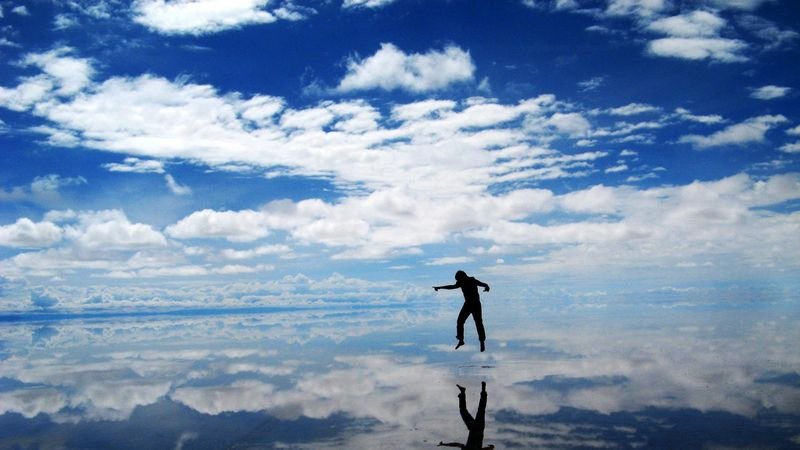
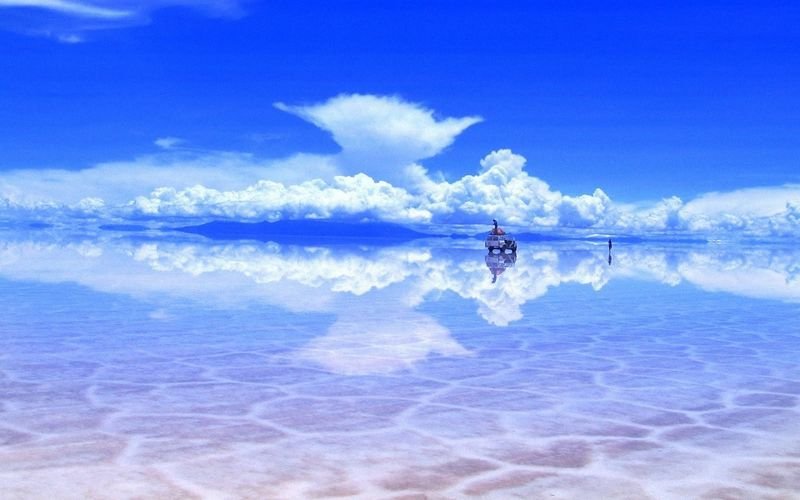
14. Speaking of lakes, how about the emerald ‘Green Lake’ in Austria?
For half the year, the contents of the lake, i.e. benches, trees, grass etc, are above ground as the lake is dry or frozen. But once the ice melts, it becomes a paradise for divers who can explore the depths of the lake with everything being submerged.
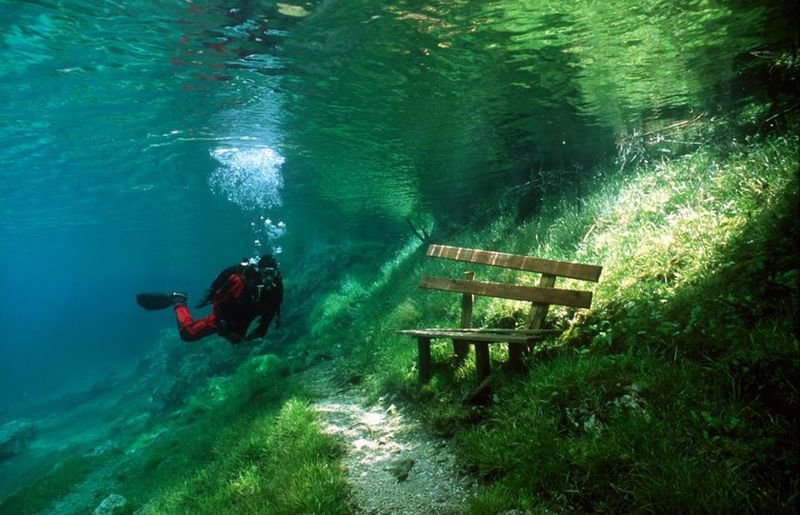
15. Or these ‘Waterspouts’ that look a little dangerous?
An intense columnar vortex that takes place over a mass of water and links it to cumulus clouds. Looks like it came right out the Captain Planet series.
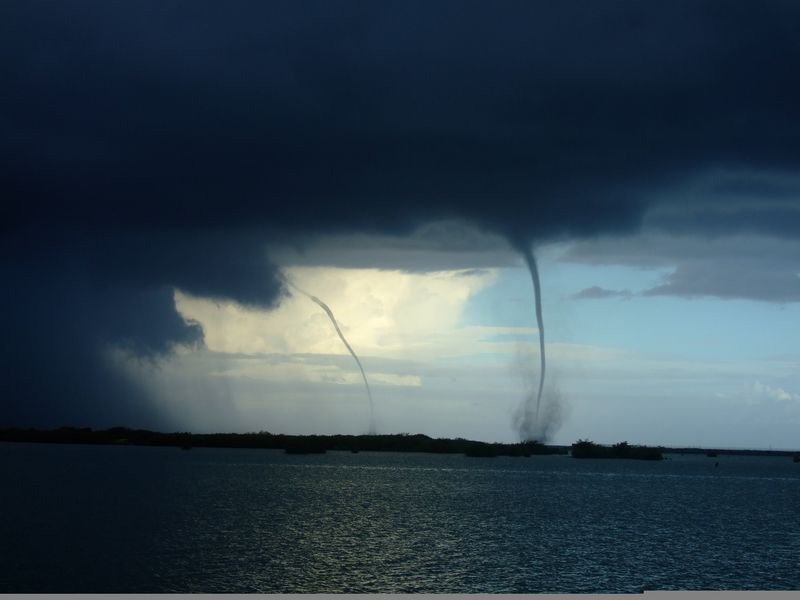
16. The unexplained ‘Sailing Stones’.
Located in Death Valley, California, it is said that when the mud is wet, high winds move the rocks and cause them to leave tracks. However, some rocks move and some don’t, thus, leaving the theory disputed.
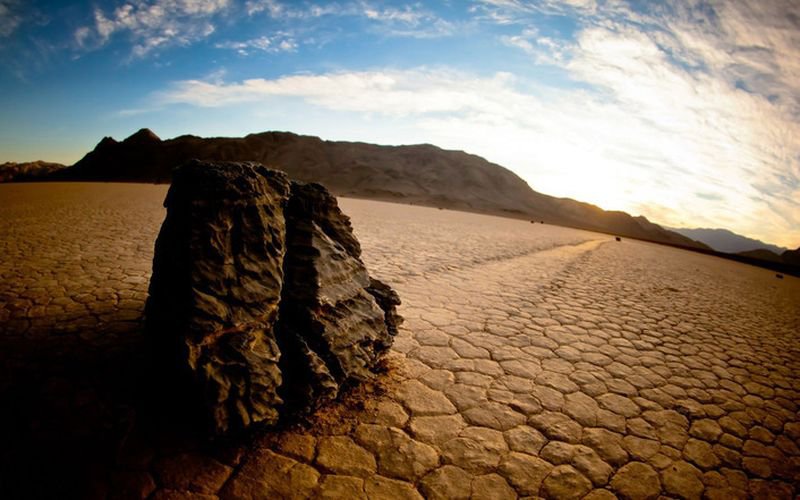
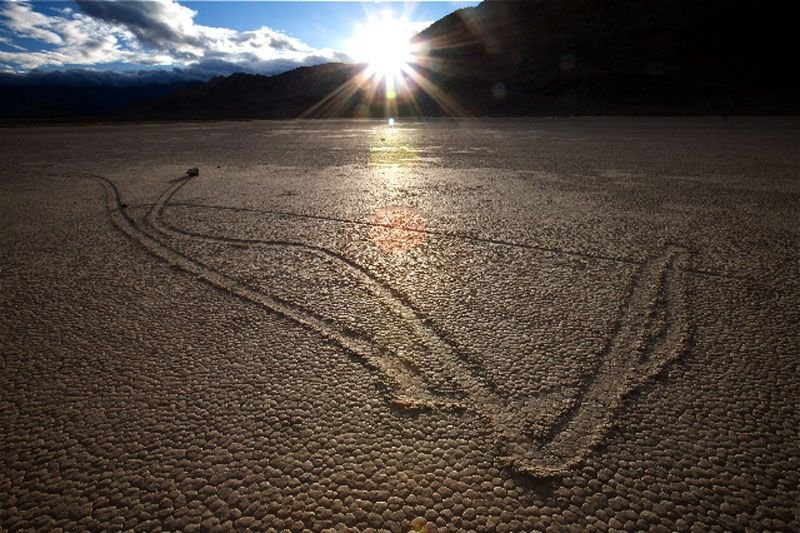
17. The glorious ‘Morning Glory Clouds’.
Created at an altitude of over 2 kms, these can stretch for up to a 1000 kms and have a wind speed of around 60 km/h.
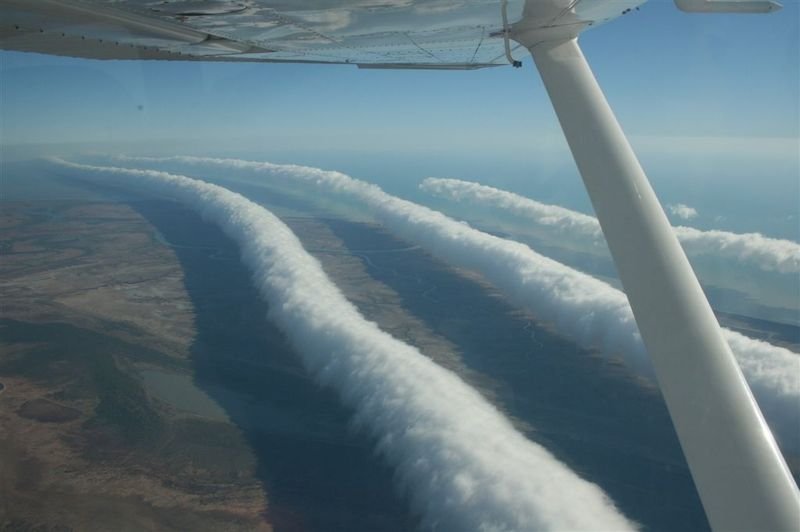
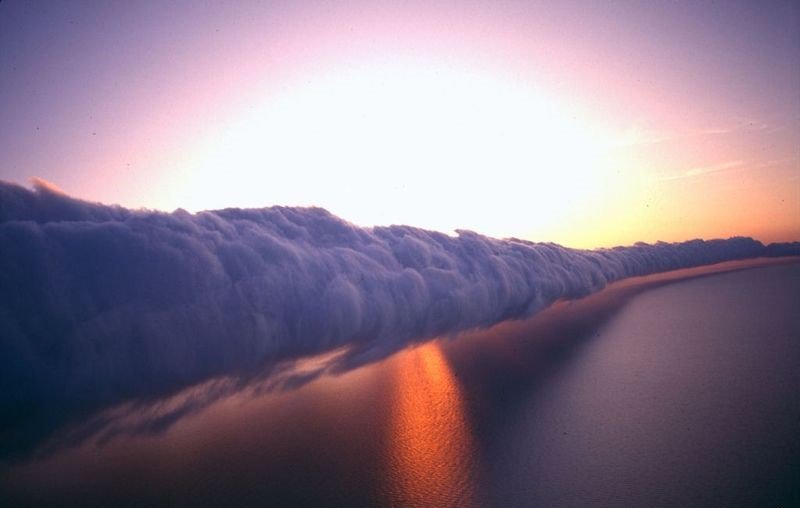
18. These perfectly shaped ‘Ice Circles’.
These appear in really cold climates and slow moving waters because of eddy currents.
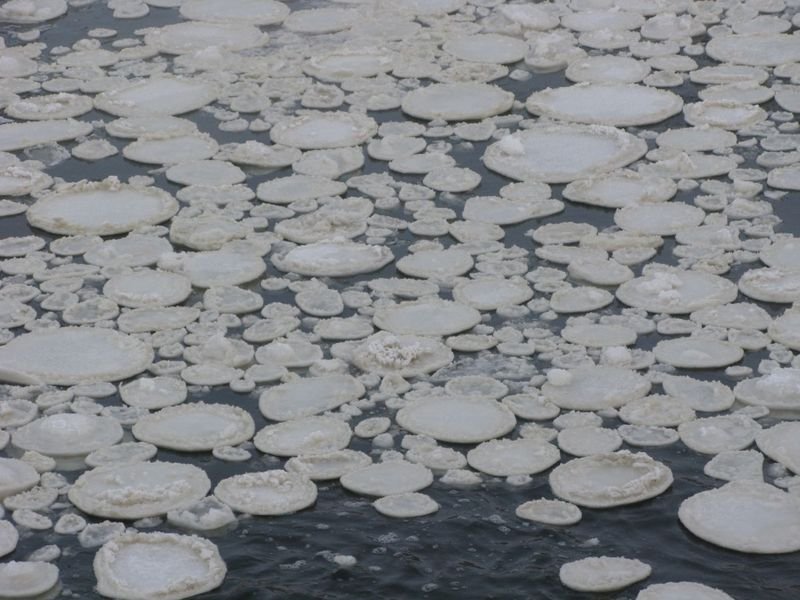
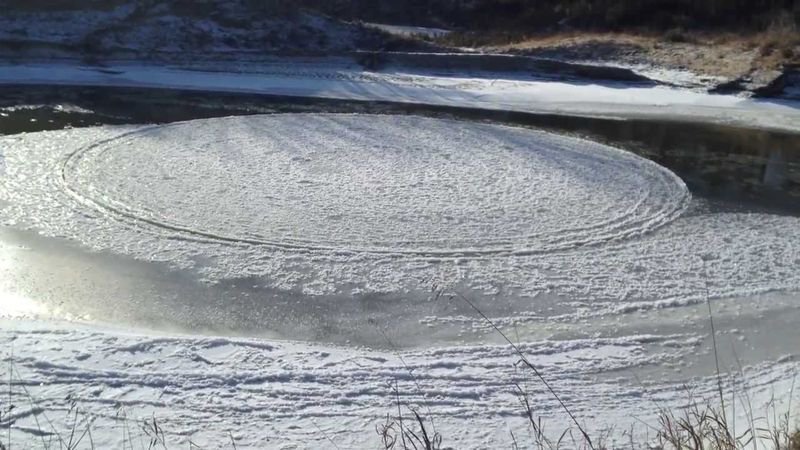
19. The spooky ‘Gippsland Lakes’ that light up.
The light is created by “bioluminescence”, which occurs when tiny organisms in the water are disturbed.
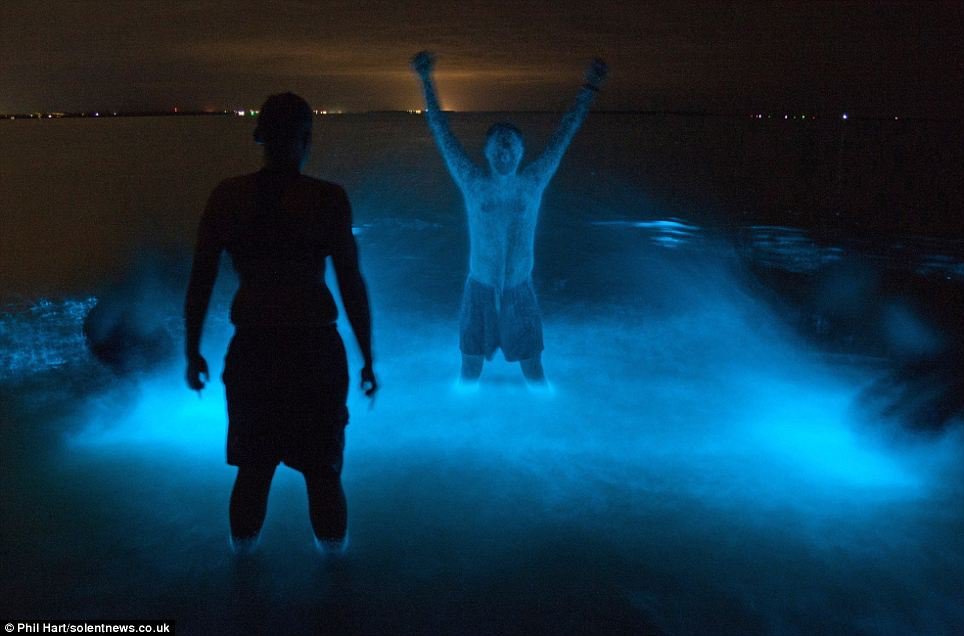
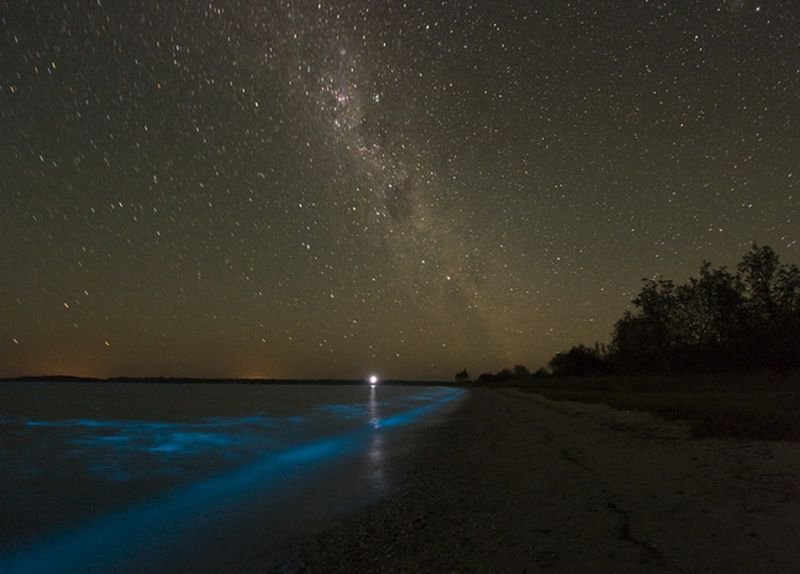
20. The similar phytoplankton phenomena occurs along the Florida Everglades.
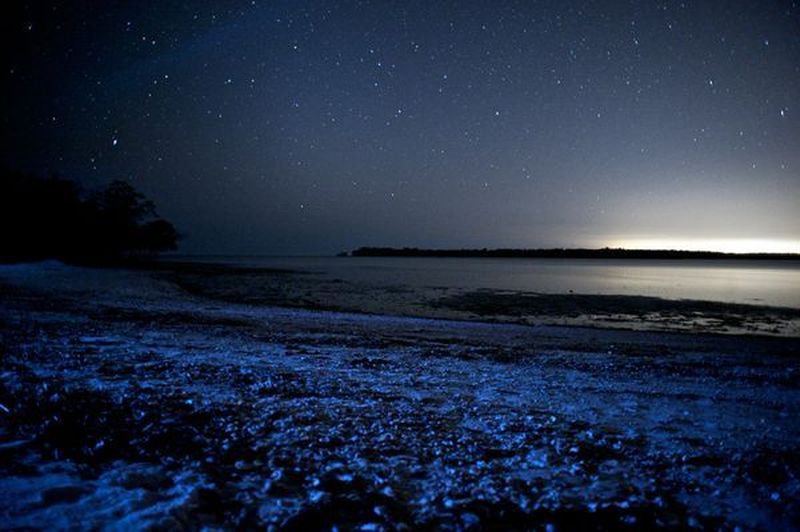
21. And even near the Lakshadweep Islands.
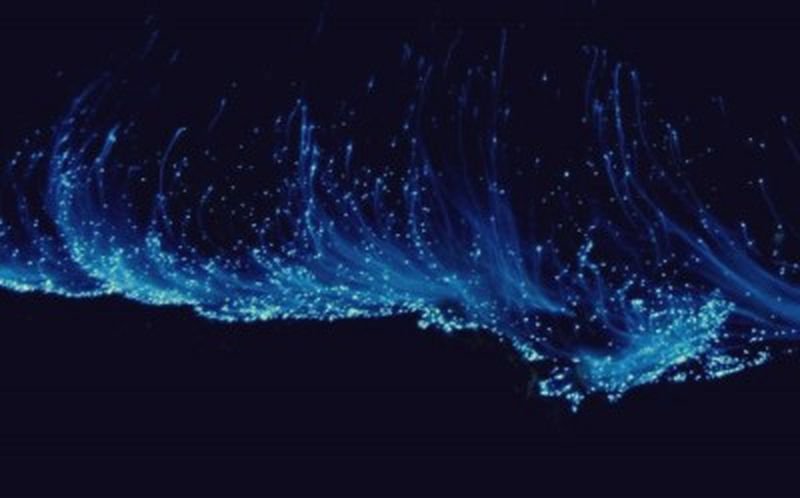
22. Speaking of glowing, how about the ‘Light Poles’ that can be seen over extremely cold cities?
A temperature of -20 degrees Celsius or lower is required to create these. Apart from that, the wind must not blow fast and there have to be loads of tiny ice crystals in the atmosphere. As pricey as this phenomena may seem, it is worth it.
